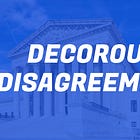Maximum University
Class applications are currently closed, but you can sign up here to be notified when they reopen in August.
Classes currently in session:
Foundations of New York City: an accelerated introduction to NYC government. One section meets in Brooklyn, and two meet in Manhattan. I will teach at a convenient meeting point for enrolled students, and will likely teach a section in Long Island City in September.
2.5-hour NYC government bootcamp for any group of 10, on any schedule. See here.
Classes that will be offered based on application demand
I will offer the classes in this section based on demand as measured through submitted applications. If I receive at least 10 qualified applicants, I will arrange a class meeting time and location for them. Each will be priced on a sliding scale (sticker price that may be lowered as needed).
In addition to the three classes below, which I’ve taught in the past, I will be offering two new classes: (1) History of Rent Control and Housing in New York City, and (2) Civics Lab: How to Increase the Size of Manhattan via Land Reclamation. You can indicate interest in any of these on the application. I will run any of these classes with at least 10 qualified applicants.





